Report on the Economic Impact of Immigration on the UK (2016-2021)
VerifiedAdded on 2022/12/28
|13
|928
|73
Report
AI Summary
This report delves into the economic impact of immigration on the UK, examining both its positive and negative effects. It begins with an introduction to the topic, highlighting government initiatives aimed at managing migration for economic benefit. The report explores the background of the issue, emphasizing the multifaceted goals behind promoting immigration, including economic advantages through work and study. A summary of the literature reviews the impact of immigration on GDP growth, labor market dynamics, and innovation, while also acknowledging potential challenges related to pension provision and the impact on low-skilled workers. The evaluation of literature sources assesses the relevance, recency, and objectivity of the research. The report concludes by summarizing the key findings and providing a list of relevant references, offering a comprehensive overview of the economic effects of immigration in the UK from 2016 to 2021.
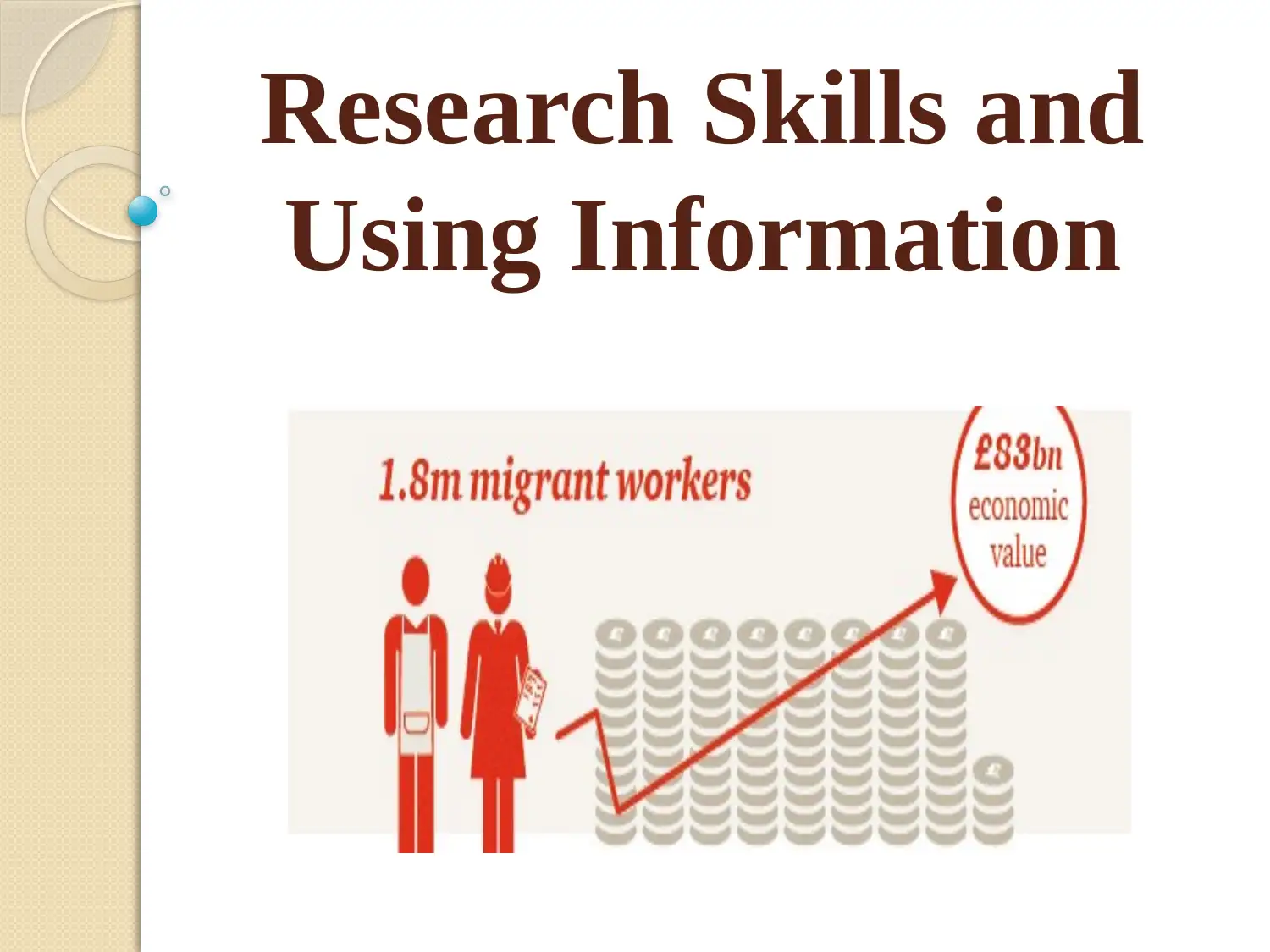
Research Skills and
Using Information
Using Information
Paraphrase This Document
Need a fresh take? Get an instant paraphrase of this document with our AI Paraphraser
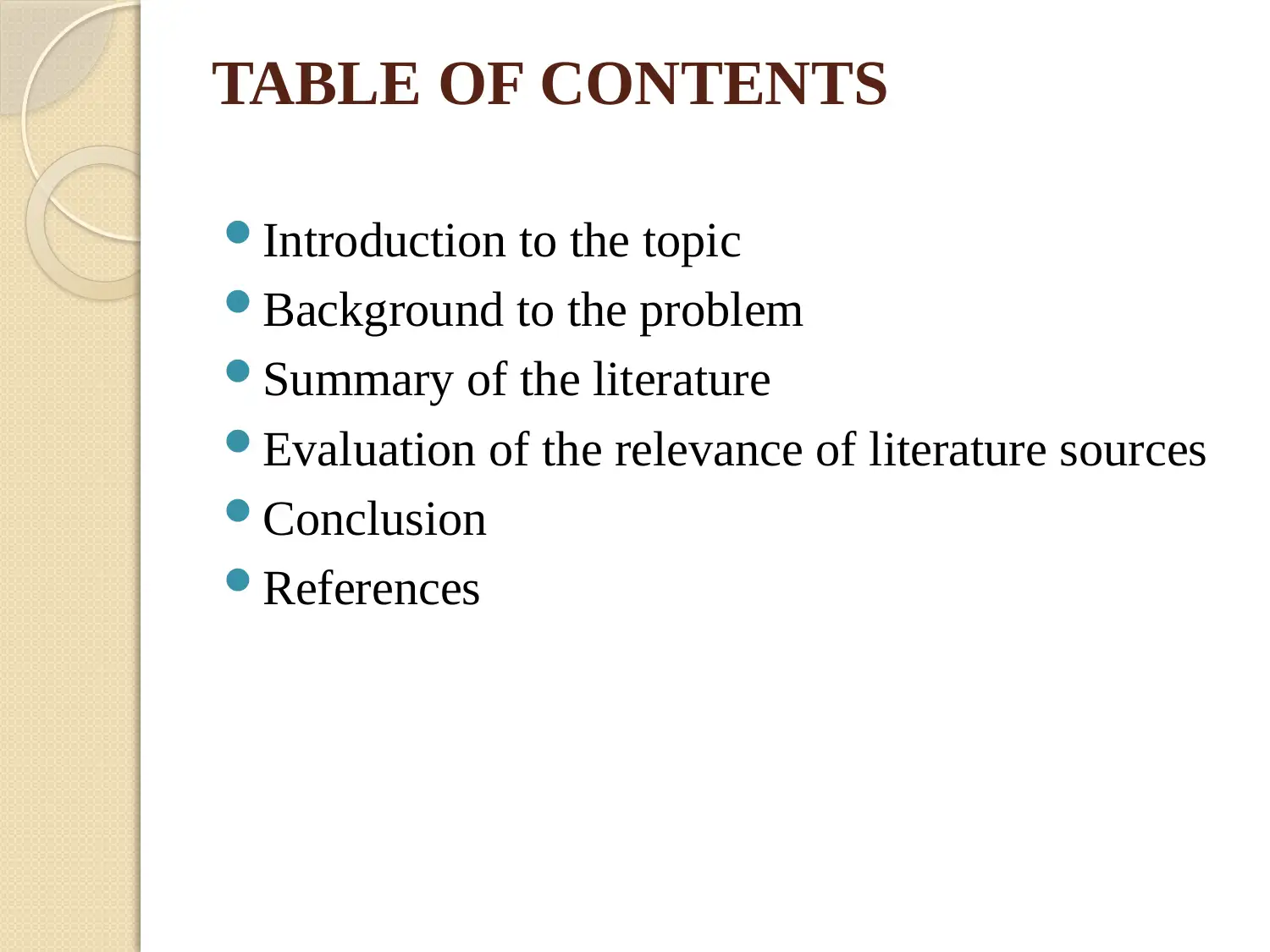
TABLE OF CONTENTS
Introduction to the topic
Background to the problem
Summary of the literature
Evaluation of the relevance of literature sources
Conclusion
References
Introduction to the topic
Background to the problem
Summary of the literature
Evaluation of the relevance of literature sources
Conclusion
References
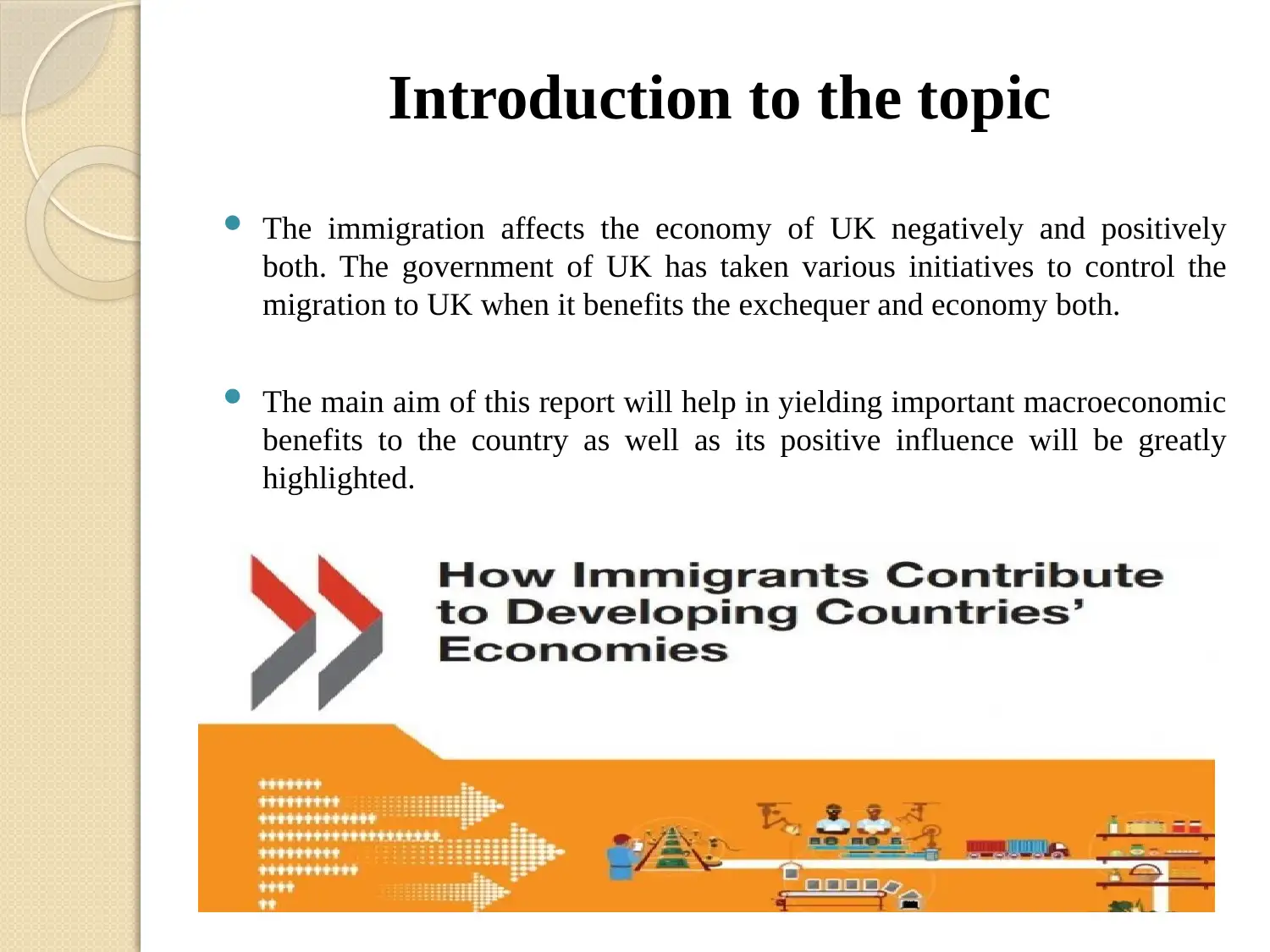
Introduction to the topic
The immigration affects the economy of UK negatively and positively
both. The government of UK has taken various initiatives to control the
migration to UK when it benefits the exchequer and economy both.
The main aim of this report will help in yielding important macroeconomic
benefits to the country as well as its positive influence will be greatly
highlighted.
The immigration affects the economy of UK negatively and positively
both. The government of UK has taken various initiatives to control the
migration to UK when it benefits the exchequer and economy both.
The main aim of this report will help in yielding important macroeconomic
benefits to the country as well as its positive influence will be greatly
highlighted.
⊘ This is a preview!⊘
Do you want full access?
Subscribe today to unlock all pages.

Trusted by 1+ million students worldwide
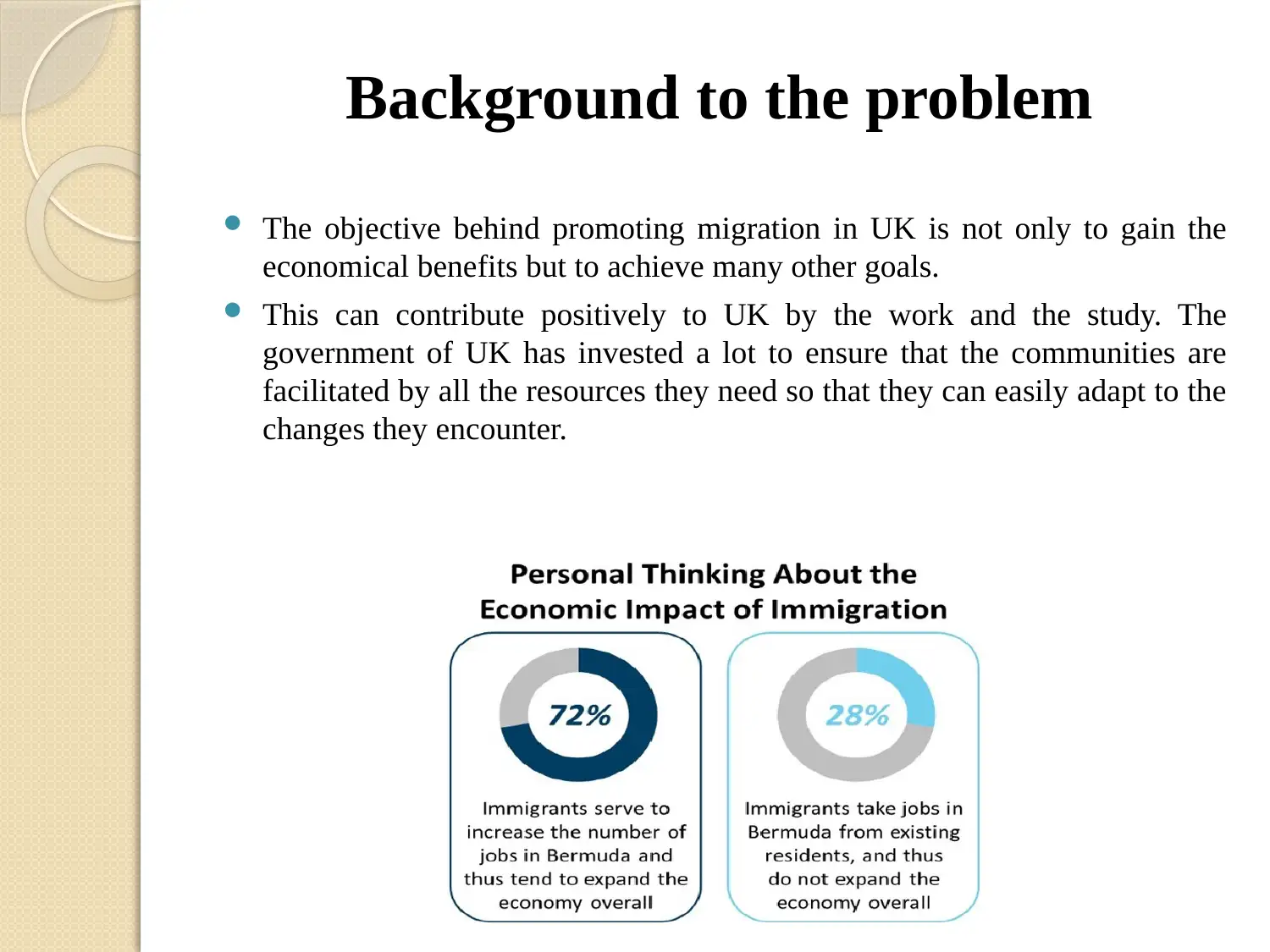
Background to the problem
The objective behind promoting migration in UK is not only to gain the
economical benefits but to achieve many other goals.
This can contribute positively to UK by the work and the study. The
government of UK has invested a lot to ensure that the communities are
facilitated by all the resources they need so that they can easily adapt to the
changes they encounter.
The objective behind promoting migration in UK is not only to gain the
economical benefits but to achieve many other goals.
This can contribute positively to UK by the work and the study. The
government of UK has invested a lot to ensure that the communities are
facilitated by all the resources they need so that they can easily adapt to the
changes they encounter.
Paraphrase This Document
Need a fresh take? Get an instant paraphrase of this document with our AI Paraphraser
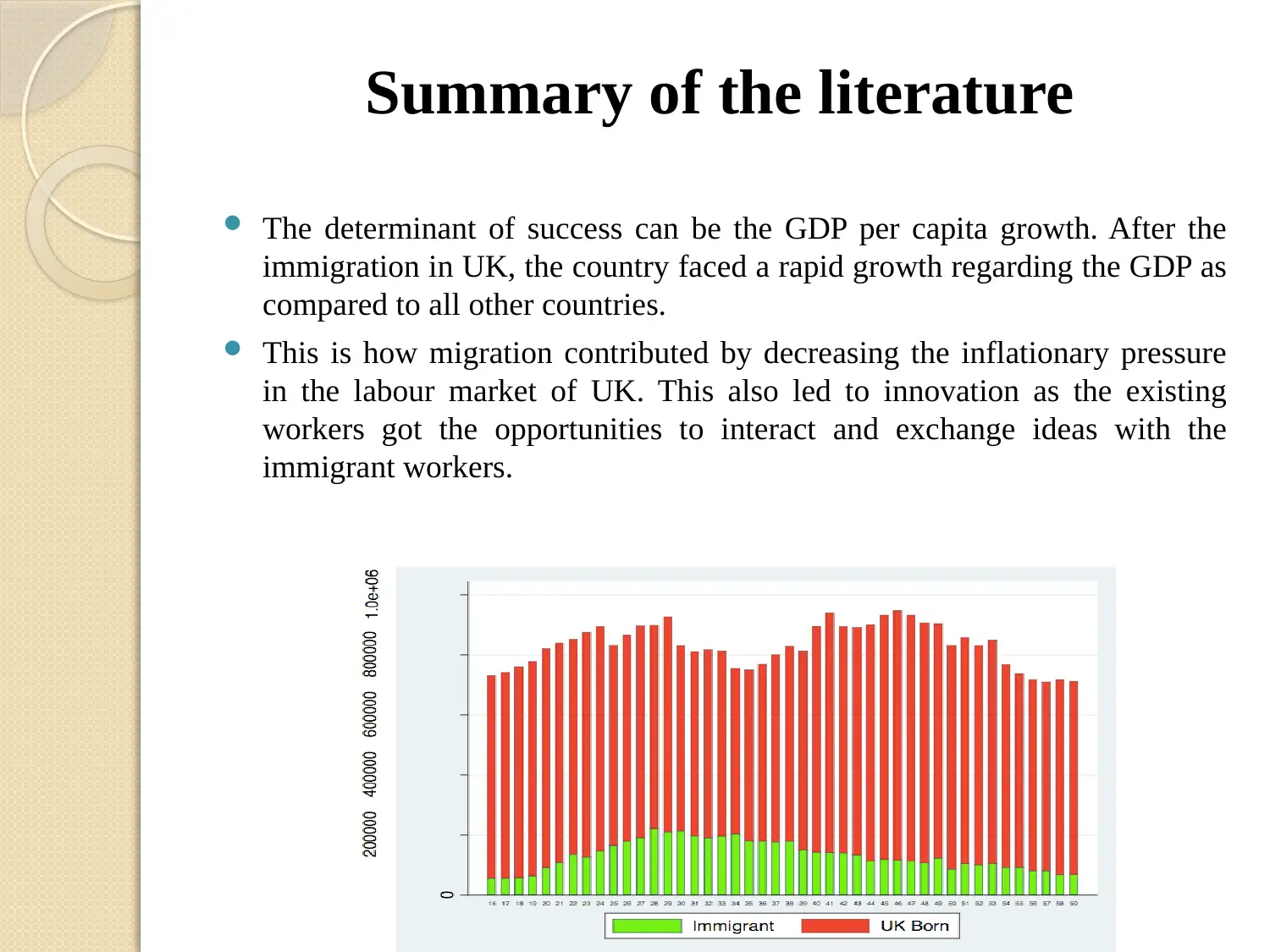
Summary of the literature
The determinant of success can be the GDP per capita growth. After the
immigration in UK, the country faced a rapid growth regarding the GDP as
compared to all other countries.
This is how migration contributed by decreasing the inflationary pressure
in the labour market of UK. This also led to innovation as the existing
workers got the opportunities to interact and exchange ideas with the
immigrant workers.
The determinant of success can be the GDP per capita growth. After the
immigration in UK, the country faced a rapid growth regarding the GDP as
compared to all other countries.
This is how migration contributed by decreasing the inflationary pressure
in the labour market of UK. This also led to innovation as the existing
workers got the opportunities to interact and exchange ideas with the
immigrant workers.
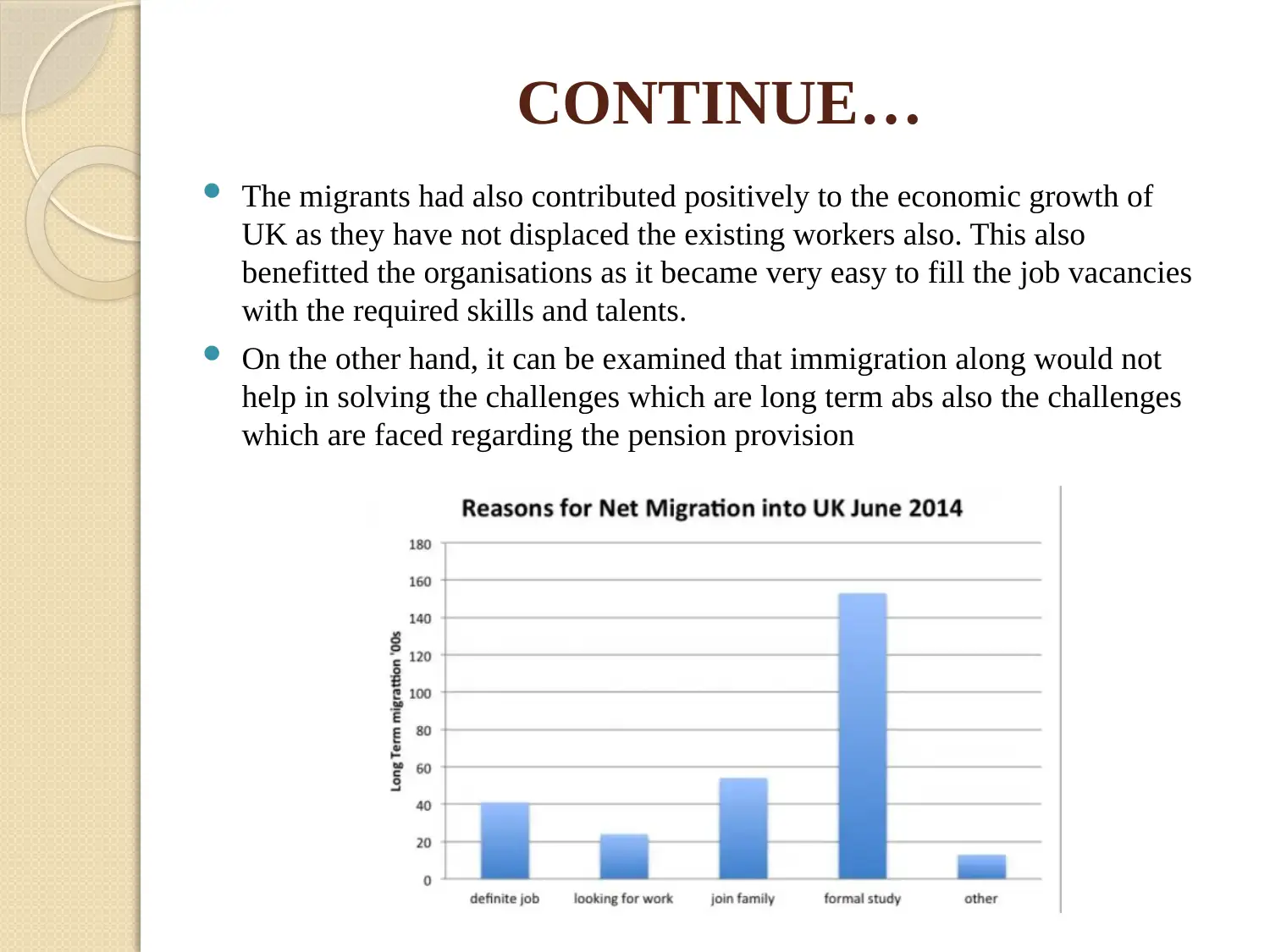
CONTINUE…
The migrants had also contributed positively to the economic growth of
UK as they have not displaced the existing workers also. This also
benefitted the organisations as it became very easy to fill the job vacancies
with the required skills and talents.
On the other hand, it can be examined that immigration along would not
help in solving the challenges which are long term abs also the challenges
which are faced regarding the pension provision
The migrants had also contributed positively to the economic growth of
UK as they have not displaced the existing workers also. This also
benefitted the organisations as it became very easy to fill the job vacancies
with the required skills and talents.
On the other hand, it can be examined that immigration along would not
help in solving the challenges which are long term abs also the challenges
which are faced regarding the pension provision
⊘ This is a preview!⊘
Do you want full access?
Subscribe today to unlock all pages.

Trusted by 1+ million students worldwide
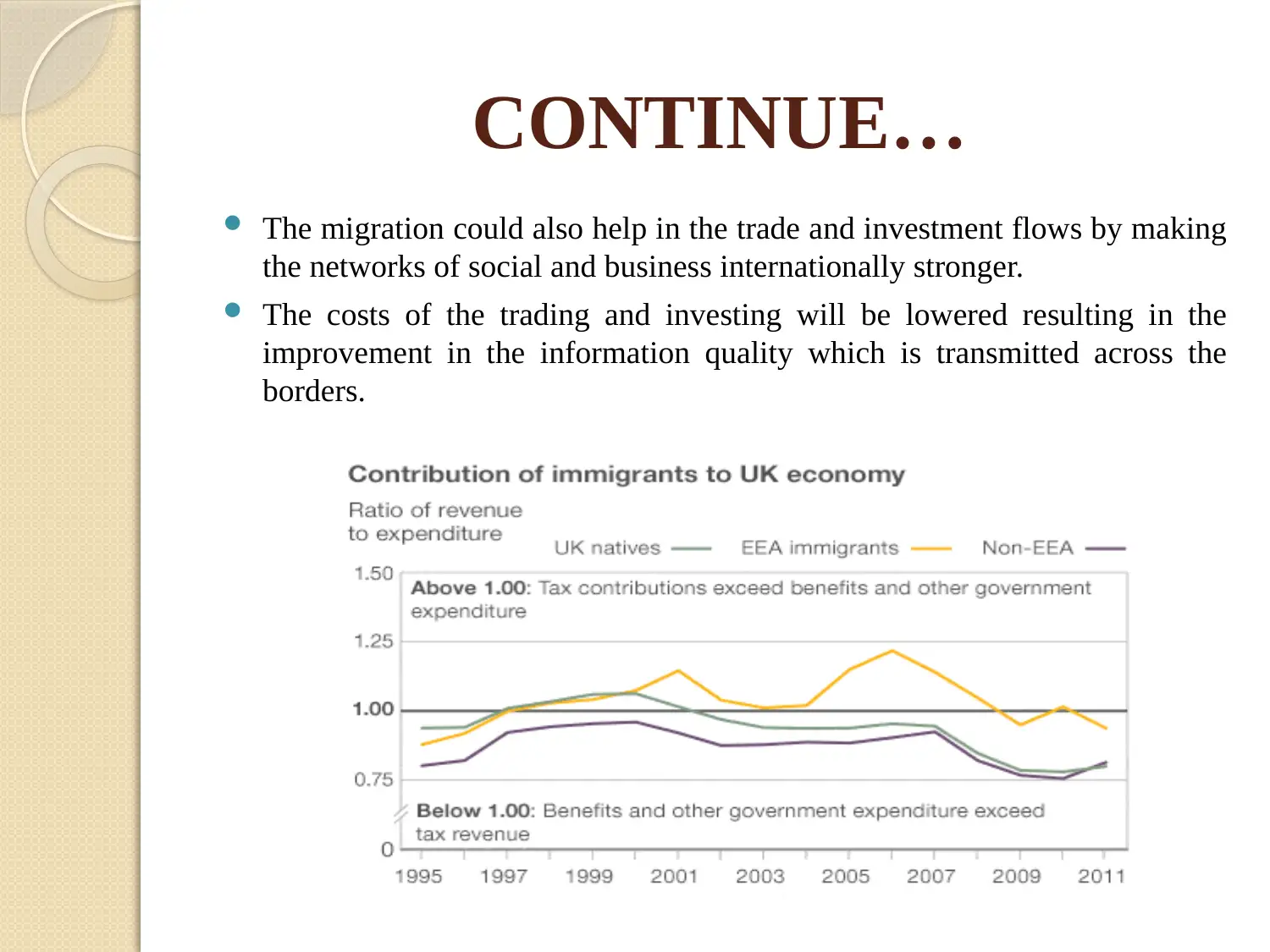
CONTINUE…
The migration could also help in the trade and investment flows by making
the networks of social and business internationally stronger.
The costs of the trading and investing will be lowered resulting in the
improvement in the information quality which is transmitted across the
borders.
The migration could also help in the trade and investment flows by making
the networks of social and business internationally stronger.
The costs of the trading and investing will be lowered resulting in the
improvement in the information quality which is transmitted across the
borders.
Paraphrase This Document
Need a fresh take? Get an instant paraphrase of this document with our AI Paraphraser
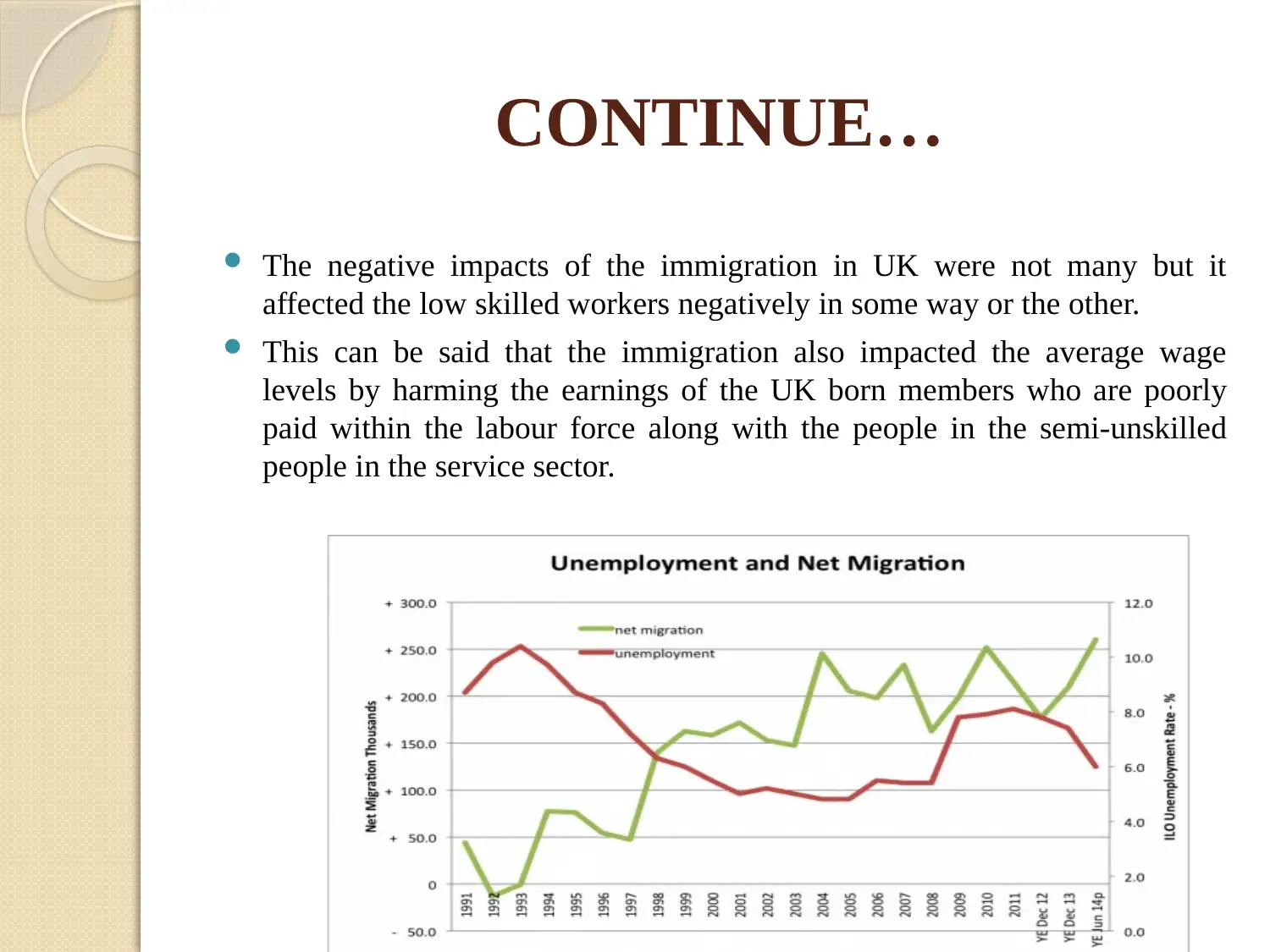
CONTINUE…
The negative impacts of the immigration in UK were not many but it
affected the low skilled workers negatively in some way or the other.
This can be said that the immigration also impacted the average wage
levels by harming the earnings of the UK born members who are poorly
paid within the labour force along with the people in the semi-unskilled
people in the service sector.
The negative impacts of the immigration in UK were not many but it
affected the low skilled workers negatively in some way or the other.
This can be said that the immigration also impacted the average wage
levels by harming the earnings of the UK born members who are poorly
paid within the labour force along with the people in the semi-unskilled
people in the service sector.
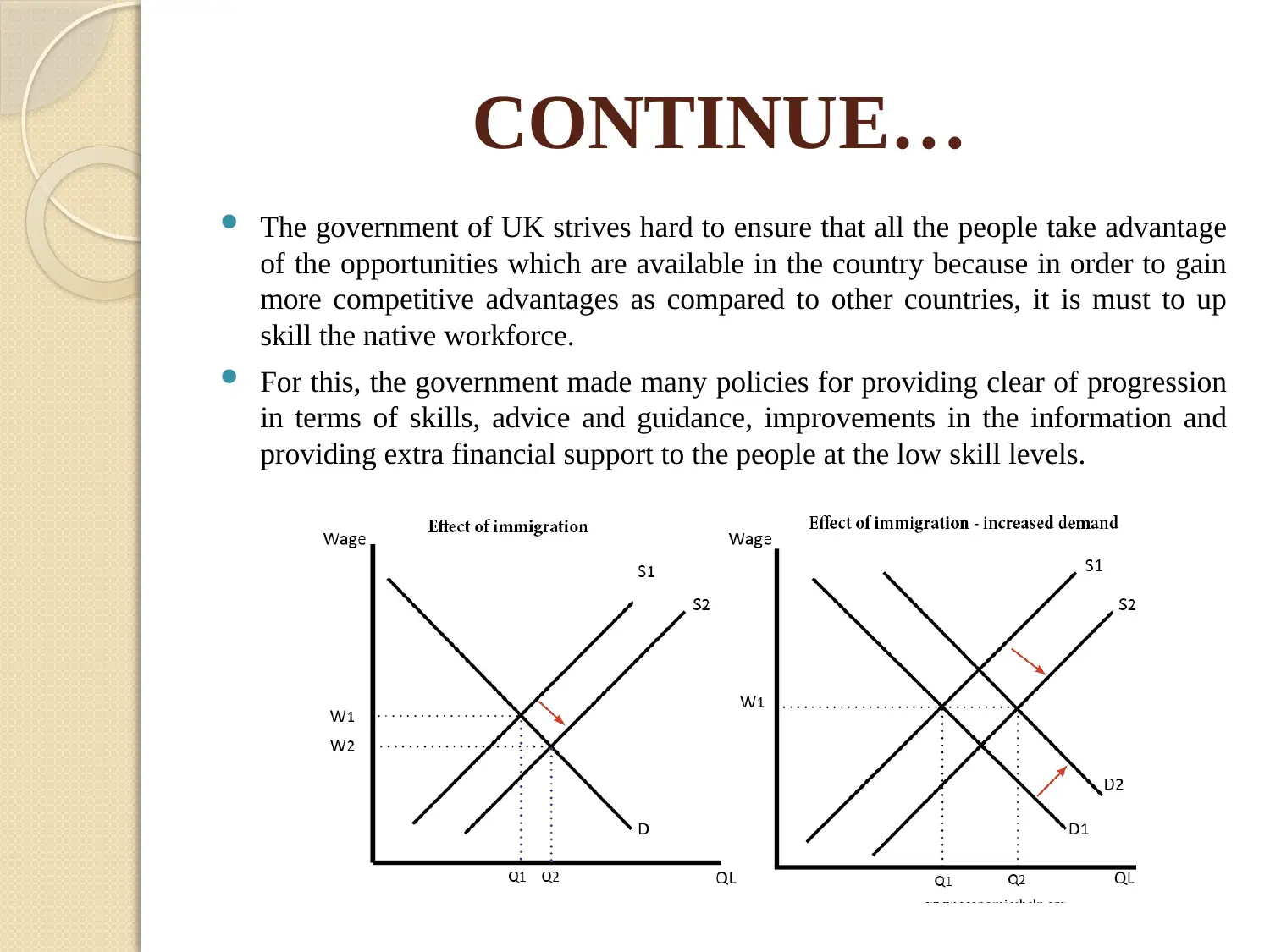
CONTINUE…
The government of UK strives hard to ensure that all the people take advantage
of the opportunities which are available in the country because in order to gain
more competitive advantages as compared to other countries, it is must to up
skill the native workforce.
For this, the government made many policies for providing clear of progression
in terms of skills, advice and guidance, improvements in the information and
providing extra financial support to the people at the low skill levels.
The government of UK strives hard to ensure that all the people take advantage
of the opportunities which are available in the country because in order to gain
more competitive advantages as compared to other countries, it is must to up
skill the native workforce.
For this, the government made many policies for providing clear of progression
in terms of skills, advice and guidance, improvements in the information and
providing extra financial support to the people at the low skill levels.
⊘ This is a preview!⊘
Do you want full access?
Subscribe today to unlock all pages.

Trusted by 1+ million students worldwide
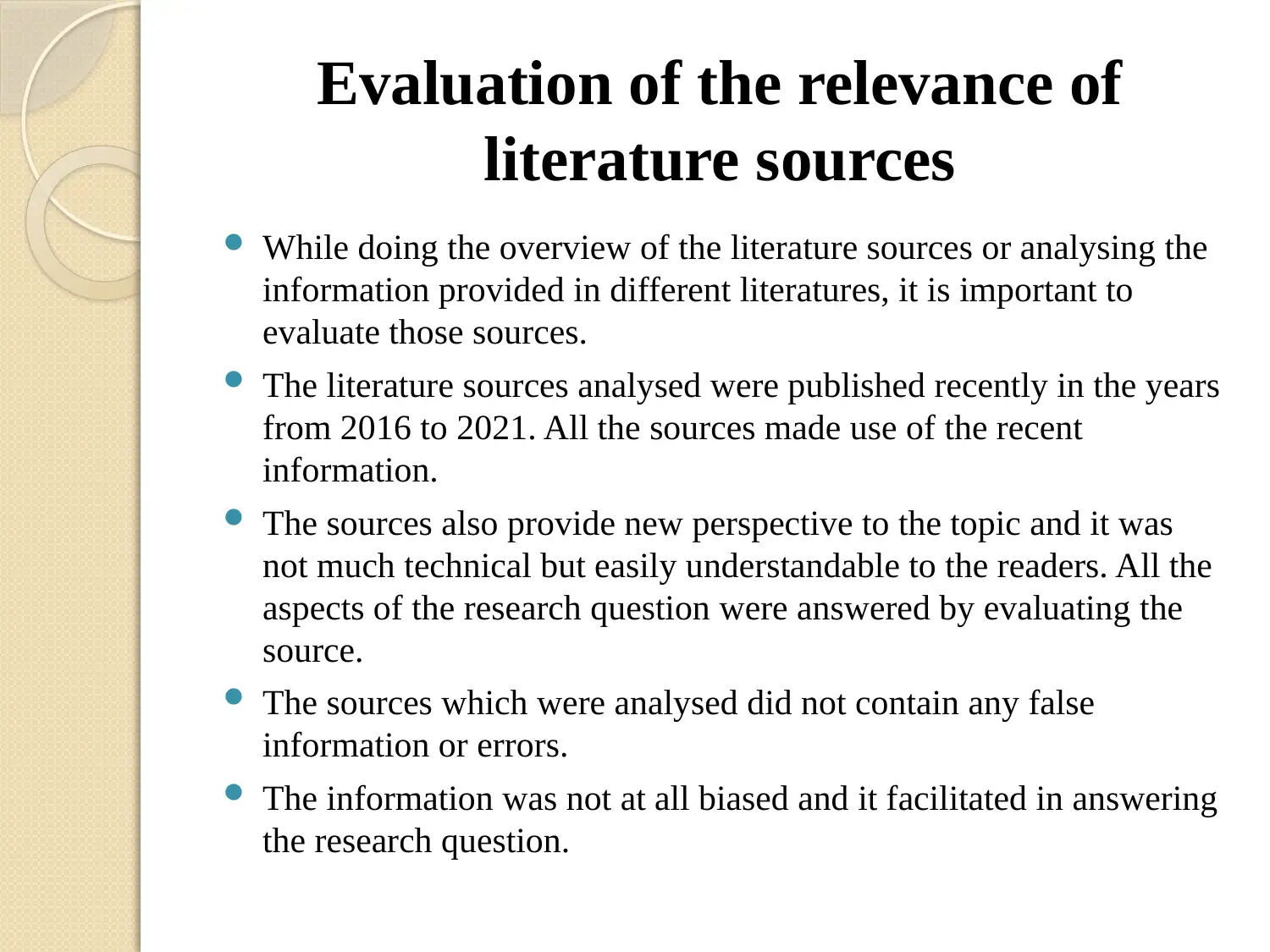
Evaluation of the relevance of
literature sources
While doing the overview of the literature sources or analysing the
information provided in different literatures, it is important to
evaluate those sources.
The literature sources analysed were published recently in the years
from 2016 to 2021. All the sources made use of the recent
information.
The sources also provide new perspective to the topic and it was
not much technical but easily understandable to the readers. All the
aspects of the research question were answered by evaluating the
source.
The sources which were analysed did not contain any false
information or errors.
The information was not at all biased and it facilitated in answering
the research question.
literature sources
While doing the overview of the literature sources or analysing the
information provided in different literatures, it is important to
evaluate those sources.
The literature sources analysed were published recently in the years
from 2016 to 2021. All the sources made use of the recent
information.
The sources also provide new perspective to the topic and it was
not much technical but easily understandable to the readers. All the
aspects of the research question were answered by evaluating the
source.
The sources which were analysed did not contain any false
information or errors.
The information was not at all biased and it facilitated in answering
the research question.
Paraphrase This Document
Need a fresh take? Get an instant paraphrase of this document with our AI Paraphraser
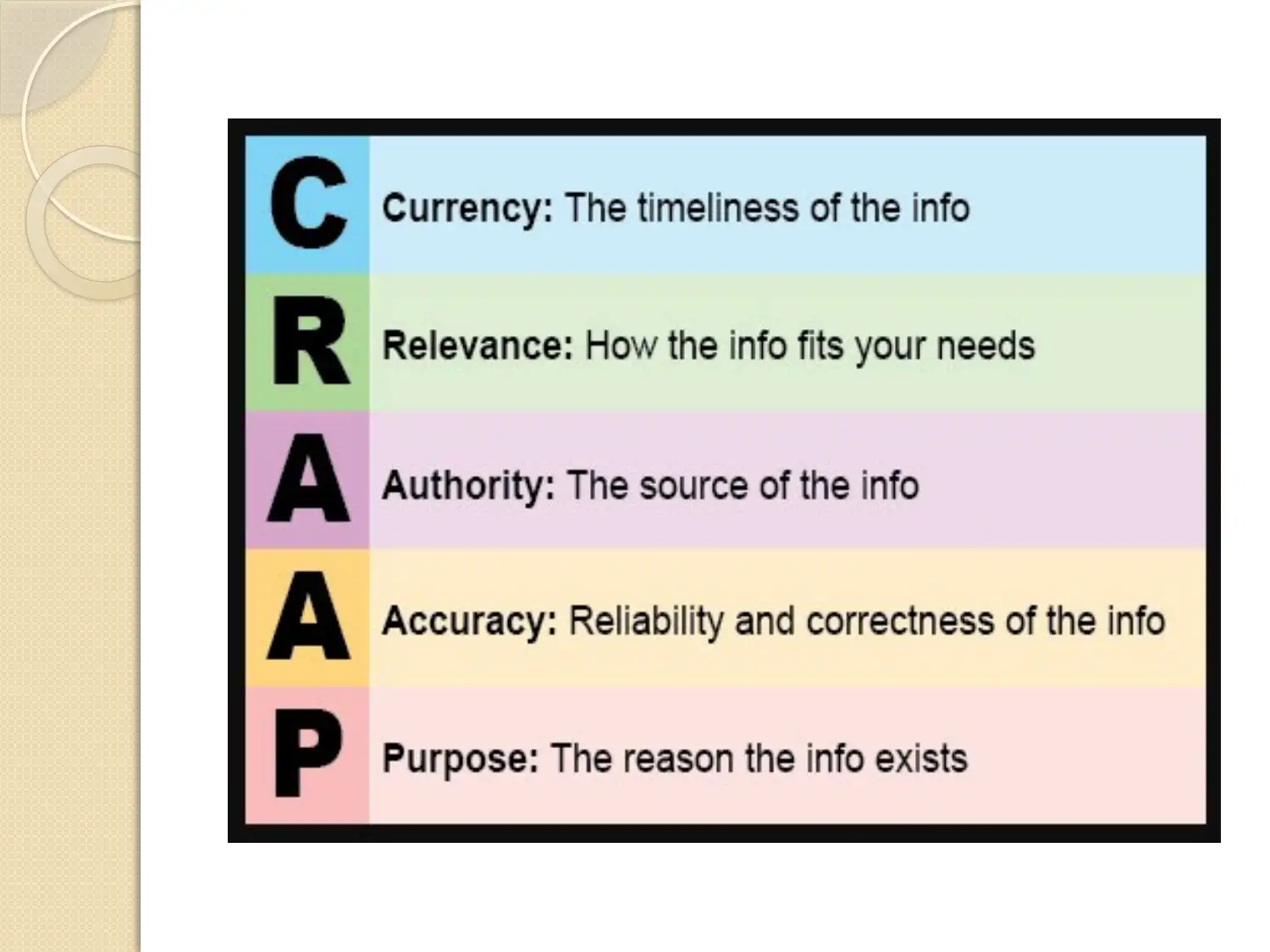
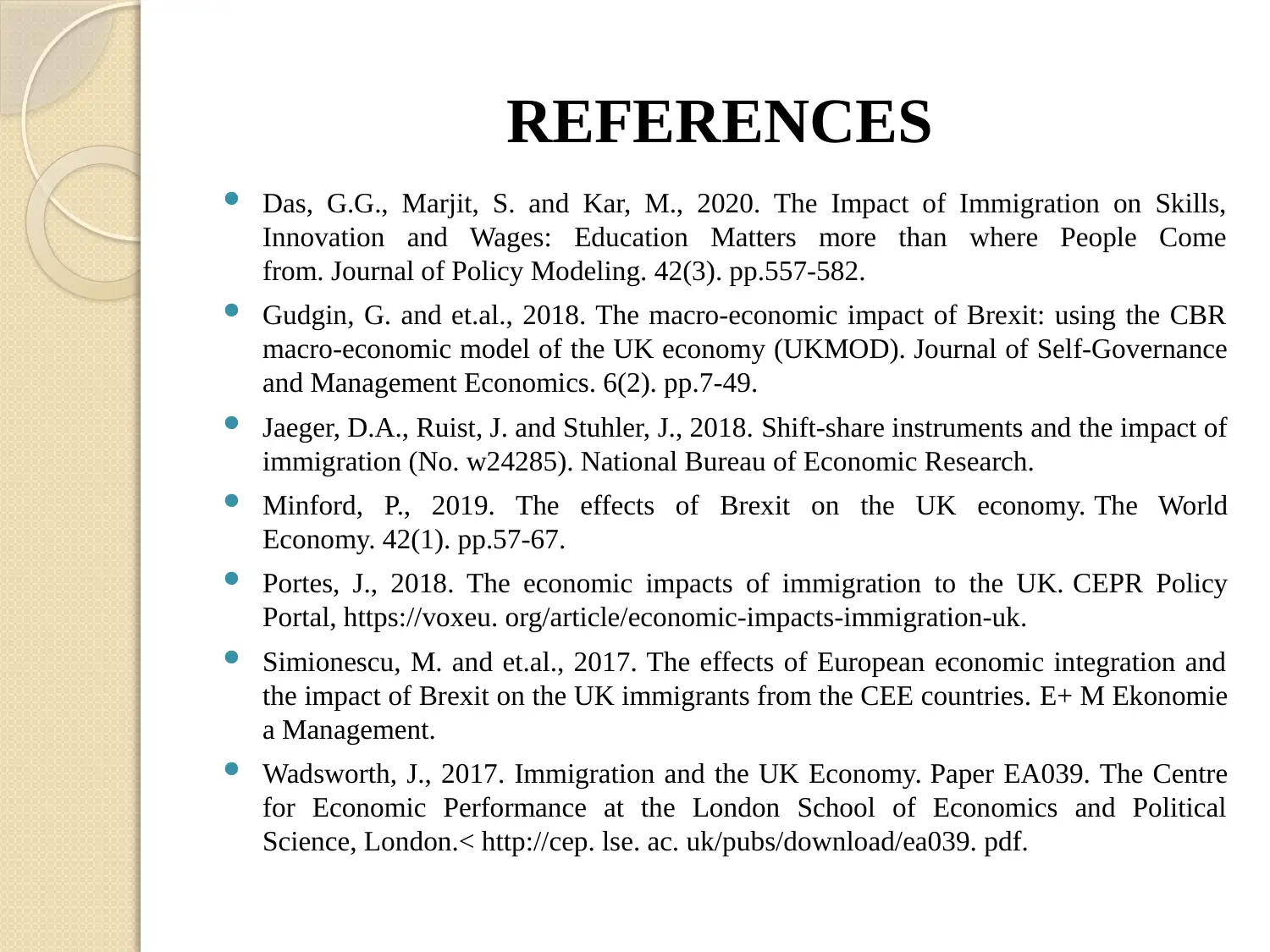
REFERENCES
Das, G.G., Marjit, S. and Kar, M., 2020. The Impact of Immigration on Skills,
Innovation and Wages: Education Matters more than where People Come
from. Journal of Policy Modeling. 42(3). pp.557-582.
Gudgin, G. and et.al., 2018. The macro-economic impact of Brexit: using the CBR
macro-economic model of the UK economy (UKMOD). Journal of Self-Governance
and Management Economics. 6(2). pp.7-49.
Jaeger, D.A., Ruist, J. and Stuhler, J., 2018. Shift-share instruments and the impact of
immigration (No. w24285). National Bureau of Economic Research.
Minford, P., 2019. The effects of Brexit on the UK economy. The World
Economy. 42(1). pp.57-67.
Portes, J., 2018. The economic impacts of immigration to the UK. CEPR Policy
Portal, https://voxeu. org/article/economic-impacts-immigration-uk.
Simionescu, M. and et.al., 2017. The effects of European economic integration and
the impact of Brexit on the UK immigrants from the CEE countries. E+ M Ekonomie
a Management.
Wadsworth, J., 2017. Immigration and the UK Economy. Paper EA039. The Centre
for Economic Performance at the London School of Economics and Political
Science, London.< http://cep. lse. ac. uk/pubs/download/ea039. pdf.
Das, G.G., Marjit, S. and Kar, M., 2020. The Impact of Immigration on Skills,
Innovation and Wages: Education Matters more than where People Come
from. Journal of Policy Modeling. 42(3). pp.557-582.
Gudgin, G. and et.al., 2018. The macro-economic impact of Brexit: using the CBR
macro-economic model of the UK economy (UKMOD). Journal of Self-Governance
and Management Economics. 6(2). pp.7-49.
Jaeger, D.A., Ruist, J. and Stuhler, J., 2018. Shift-share instruments and the impact of
immigration (No. w24285). National Bureau of Economic Research.
Minford, P., 2019. The effects of Brexit on the UK economy. The World
Economy. 42(1). pp.57-67.
Portes, J., 2018. The economic impacts of immigration to the UK. CEPR Policy
Portal, https://voxeu. org/article/economic-impacts-immigration-uk.
Simionescu, M. and et.al., 2017. The effects of European economic integration and
the impact of Brexit on the UK immigrants from the CEE countries. E+ M Ekonomie
a Management.
Wadsworth, J., 2017. Immigration and the UK Economy. Paper EA039. The Centre
for Economic Performance at the London School of Economics and Political
Science, London.< http://cep. lse. ac. uk/pubs/download/ea039. pdf.
⊘ This is a preview!⊘
Do you want full access?
Subscribe today to unlock all pages.

Trusted by 1+ million students worldwide
1 out of 13
Related Documents
Your All-in-One AI-Powered Toolkit for Academic Success.
+13062052269
info@desklib.com
Available 24*7 on WhatsApp / Email
![[object Object]](/_next/static/media/star-bottom.7253800d.svg)
Unlock your academic potential
Copyright © 2020–2026 A2Z Services. All Rights Reserved. Developed and managed by ZUCOL.





